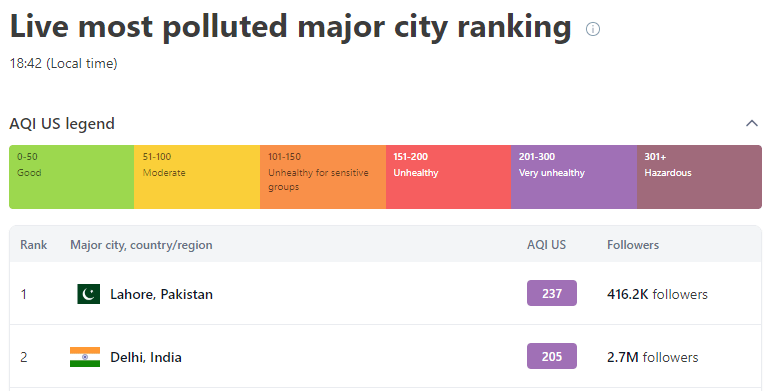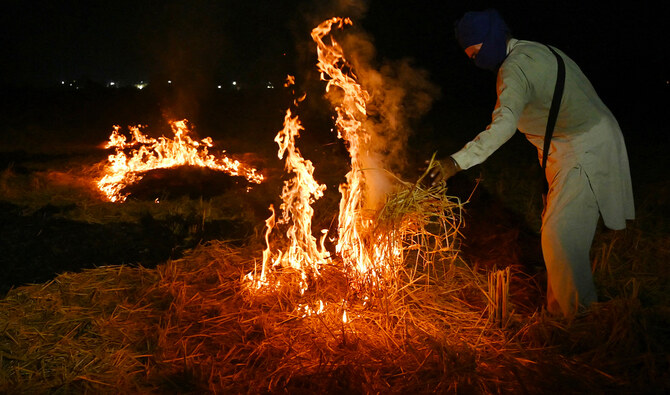Burning Crop Waste
At least 16 farmers have been arrested in the northern Indian state of Haryana for illegally burning paddy stubble, a practice that contributes significantly to the rising air pollution in the region surrounding New Delhi.
This burning of crop residue is common during the onset of winter, as farmers clear their fields for the next planting season.
However, it exacerbates air pollution levels, which already spike in this period due to a combination of weather conditions and emissions from various sources, including vehicles and construction. The arrests were confirmed by local authorities on Tuesday.
In addition to the arrests in Haryana, the Punjab police have registered at least 182 complaints and arrested 71 people for stubble burning, operating prohibited brick kilns, and driving smoke-emitting vehicles.
The Punjab government is taking steps to combat the worsening air quality. Senior Punjab minister Marriyum Aurangzeb announced that resources have been allocated for artificial rain and other measures to mitigate the pollution.
Each instance of artificial rain, a method used to clear the air by forcing precipitation, is expected to cost between Rs5 million and Rs7 million.
The pollution crisis worsens every year in the New Delhi region as temperatures drop, trapping pollutants such as dust, vehicle emissions, and smoke from nearby agricultural states like Punjab and Haryana.
On Tuesday morning, the Central Pollution Control Board (CPCB) recorded an air quality index (AQI) of 320, categorizing it as “very poor.” An AQI between 0 and 50 is considered good, while levels between 400 and 500 pose significant health risks.
According to live rankings by IQAir, New Delhi was the second-most polluted city in the world on Tuesday, trailing only Lahore, Pakistan.

In response, Punjab Chief Minister Maryam Nawaz emphasized the need for “climate diplomacy” with India to address the severe smog conditions affecting both nations.
Haryana’s Kaithal region has also seen 22 complaints of stubble burning filed this year, with 16 arrests made. Birbhan, a deputy superintendent of police, stated that those arrested were later released on bail.
Authorities have launched investigations against nearly 100 farmers across Haryana and imposed fines on more than 300, according to local media.
India’s environment ministry has warned that Delhi’s air quality is likely to remain in the ‘Very Poor’ category (300-400 AQI) in the coming days due to unfavorable meteorological conditions.
In an attempt to curb the pollution, authorities in Delhi have implemented emergency measures such as sprinkling water on roads to reduce dust, increasing public transportation services like buses and metro trains, and raising parking fees to discourage private car use.
Despite these actions, environmentalists argue that the measures are insufficient. Environmentalist Vimlendu Jha criticized the short-term responses, calling for a more comprehensive, long-term solution to air pollution rather than relying on temporary emergency measures.


